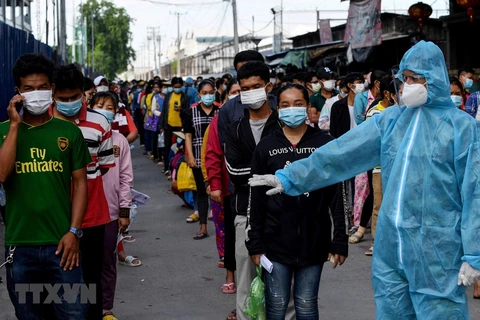Hanoi (VNA) – Laos’ daily count of COVID-19 cases has exceeded 300, while the figure has surpassed 16,000 in the Philippines.
The Lao Ministry of Health on August 22 confirmed 305 new cases of COVID-19, comprising 224 imported and 81 community ones.
The local pandemic conditions remained complicated with increasing number of cases detected in the community.
To date, the nation recorded a total of 12,469 infections, including 11 deaths.
Thailand logged 19,014 new cases of COVID-19 along with 233 more fatalities on the same day, the nation’s Center for COVID-19 Situation Administration (CCSA) said.
A spokesperson for the CCSA said earlier that despite the situation remains worrisome, there are positive signs showing that the number of new infections has passed its peak, which might slow down the new caseload.
Since the pandemic first hit the country early last year, Thailand has had 1,049,295 infections, 839,855 of whom have recovered, while the death toll stands at 9,320. As of August 21, the country has administered more than 26.7 million doses of vaccines, with 8.5 percent of its whole population having been fully vaccinated, according to the CCSA.
Also on August 22, the Philippines logged 16,044 new coronavirus cases and 215 related deaths, bringing the national tally and death toll to 1,839,635 and 31,810, respectively./.
VNA
























